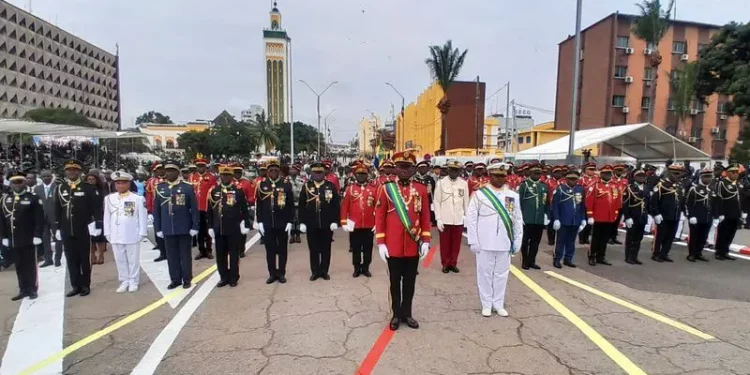A year after the military coup that ended the Bongo dynasty’s 56-year rule, Gabon marked the anniversary with celebrations and a renewed sense of hope.
The ruling junta, led by interim president General Brice Oligui Nguema, has vowed to accelerate reforms that many Gabonese believe are essential to reviving the country’s stagnant economy.
The coup, which ousted President Ali Bongo, was largely welcomed by the population, who had grown disillusioned with the Bongo family’s mismanagement of Gabon’s vast oil wealth. This mismanagement had left a third of the population in poverty despite the country’s resources.
On Friday, hundreds of people gathered in Libreville’s capital center to celebrate what has come to be known as the “coup of liberation.” Brass bands played, and crowds cheered as civil servant Edwige Bengone, donning a t-shirt with Nguema’s photo, expressed the collective relief, “The Gabonese have cried so much. He (Nguema) came to wipe away our tears. And today we’re happy.”
However, the economic future remains uncertain. Despite steps taken by the junta to improve transparency and budget management, significant challenges persist. Gabon’s infrastructure is underdeveloped, the country relies heavily on food imports, and income per capita has declined since the 1970s.
The Committee for the Transition and Restoration of Institutions, as the junta calls itself, has yet to confirm a date for a promised transition to democracy. While many Gabonese, like student Ulrich Yebe, remain cautiously optimistic about the progress made in just one year, others, including prominent Bongo critic and now senior national assembly figure Geoffroy Foumboula, have expressed concerns about the slow pace of institutional reforms.
In a national television address, Nguema acknowledged these concerns, stating, “Our work together is not finished. But it is well underway. We have initiated change. And we must continue on this path.”
Criticism of the junta also includes the dominance of the military in ongoing national dialogues and a lack of clarity regarding the timeline for presidential elections. Uncertainty remains over whether junta members will be eligible to run, raising further questions about the future of Gabon’s governance.
Despite these challenges, Nguema’s skillful engagement with opposition factions and civil society has helped maintain cautious optimism among many Gabonese. However, as the International Monetary Fund warned in May, a brighter economic outlook will depend on the authorities’ ability to transition to a more open and inclusive model of governance.









